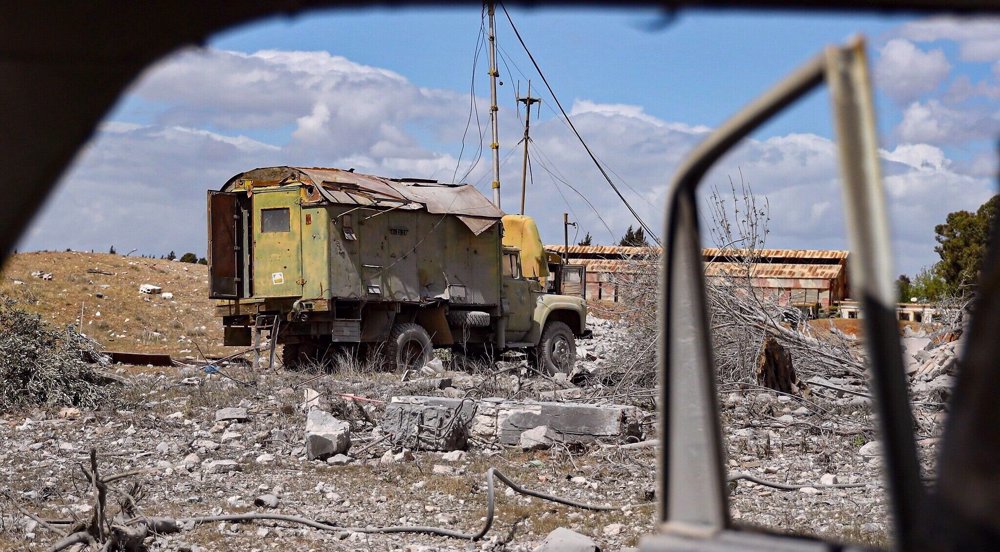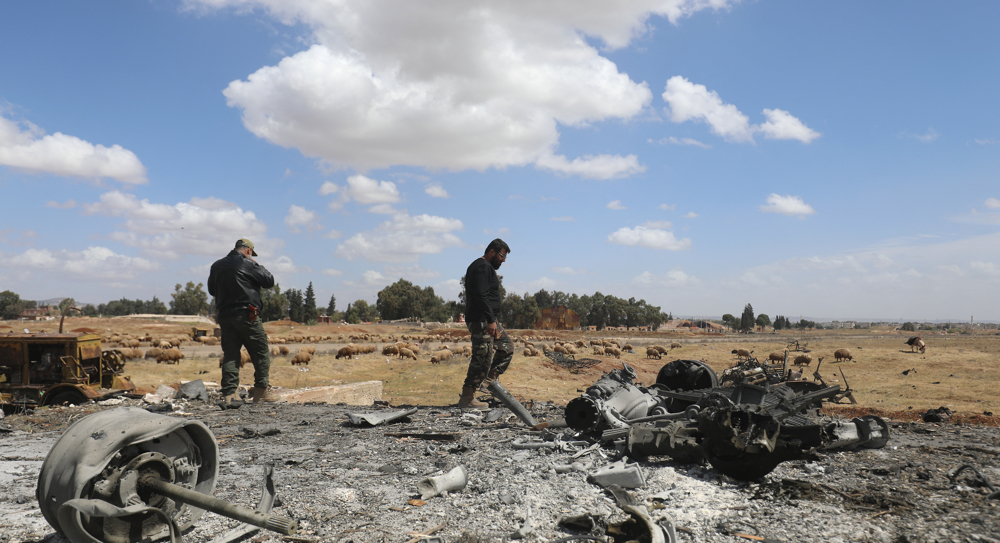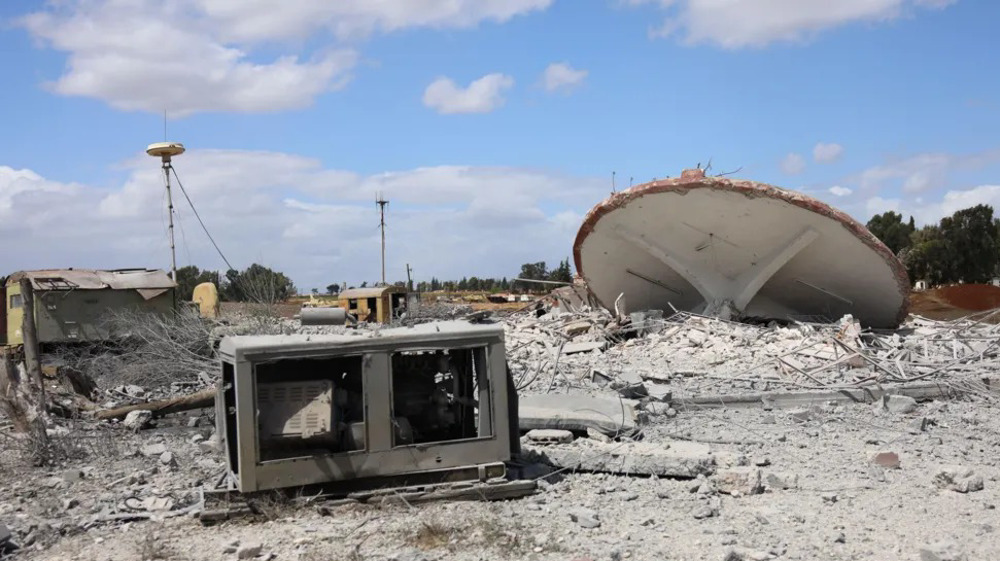Syria slams foreign bid to 'recycle' Takfiri terrorists, defends right to target them
Syria’s permanent representative to the United Nations has blasted foreign attempts to "recycle" Takfiri terrorist groups by calling them as "moderate armed opposition," asserting that Damascus will continue to protect its citizens by fighting the foreign-backed militancy even if some countries falsely accuse the government of targeting civilians.
Bashar al-Ja'afari told the United Nations Security Council that Syrian people would see peace only when some foreign countries stop supporting the terrorists and undermining Syria's fight against them.
“With every victory achieved by the Syrian Arab army on terrorism, some Security Council members launch campaigns of lies to distort this victory and defame the image of Syria,” Ja'afari said during a UNSC meeting about the situation in Syria on Thursday.
He said some members of the Security Council also fueled anti-Syrian hysteria by falsely claiming that pro-government forces target civilians while in reality the army is attacking strictly terrorist positions.
He emphasized on the need to preserve the three-way efforts by Iran, Turkey and Russia to bring peace back into Syria in the form of the Astana talks, a series of peace negotiations in Kazakhstan's capital that have produced ceasefires and de-escalation zones in Syria over the past few years.
“Syria stresses the need for not targeting Astana track which enjoys a wide support, particularly from the Syrian people who are the owner of the basic authority in self-determination,” Ja'afari said.
The envoy went on to blast an agreement between the United States and Turkey to establish a so-called “buffer Zone” in northern Syria, calling it an aggression on the Arab country's sovereignty and territorial integrity.
He also warned that the move by Washington and Ankara as two "aggressors" amounted to a flagrant violation of international law as well as UN conventions.
“The agreement has uncovered the partnership of the two states in aggression on Syria, and it has unveiled the volume of deception that governs policies of these states,” Ja'afari said.
“We are in front of a dangerous situation which is represented by an agreement between two hostile countries, that support terrorism in Syria, to frankly negotiate on targeting Syria’s territory in a flagrant violation of 20 resolutions issued by UN Security council which stress adherence to Syria’s sovereignty and territorial integrity,” he asserted.
Ja'afari also brought attention to Israel's involvement in the creation of the terrorist organizations in the region, citing as evidence the regime's latest attacks on Syria, Iraq and Lebanon.
"These attacks were supported by Washington in an expression of the US-Israeli partnership with the aim of destabilizing the situation in the region,” Ja'afari argued.
He rejected the UN General Secretariat’s claims in a recent report that Syrian armed forces have been targeting civilians in their ongoing offensive to purge terrorists from Idlib, saying what the UN is calling "civilian" are militant groups that are not included in the Astana de-escalation zone agreement.
“Astana agreement on the de-escalation zones doesn’t include the terrorist groups enlisted on the UN Security Council list of the terrorist entities, and it asserts the right of the Syrian state to confront the terrorist organizations regardless of their names,” Ja'afari stressed.
He restated Syria's willingness to cooperate with the UN envoy for Syria help him succeed in his mission to facilitate dialogue.
He asserted that for that to materialize, foreign countries needed to leave Syria first.
“To have the efforts of the UN envoy succeeded, it is required to end the foreign illegitimate presence in Syria and committing to Syria’s sovereignty and territorial integrity and supporting efforts of combating terrorism," Ja'afari added.
He also called for lifting sanctions against Syria, calling them acts of economic terrorism.
Syria, gripped by a foreign-backed militancy since 2011 that has killed hundreds of thousands, has managed to take back control of many territories from the Takfiri Daesh and other terrorist groups. The war has displaced millions of people inside the Arab country.

Israel claims it destroyed former military site in southern Syria

Britain urges Israel to respect Syria’s borders, prioritize diplomacy

Israeli warplanes carry out more airstrikes near Damascus
VIDEO | Yemen accuses US of targeting civilians in Eid airstrike
Iran posts $14.6bn trade deficit for calendar year to late March
VIDEO | Ukraine: The US U-turn that knocked out Europe
US revokes all visas held by South Sudanese passport holders
Iran embassy condemns Netanyahu’s visit to Hungary, calls Israel ‘threat to world peace’
Iran will stand up to bullying: Top general outlines Leader’s reply to Trump’s letter
US rights group slams Western countries for ‘perpetrating genocide’ in Gaza
US revokes another university student visa ‘without explanation’









 This makes it easy to access the Press TV website
This makes it easy to access the Press TV website